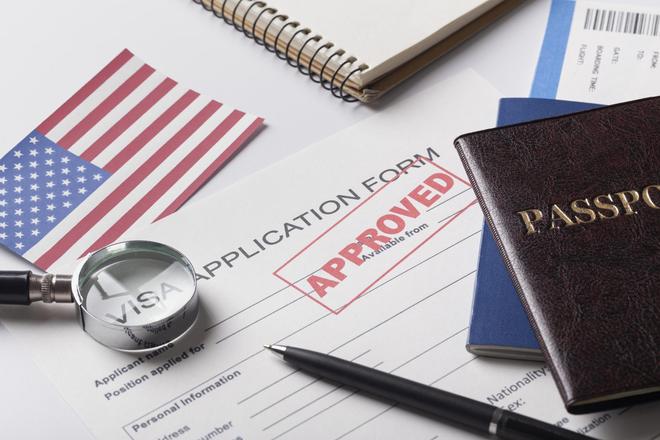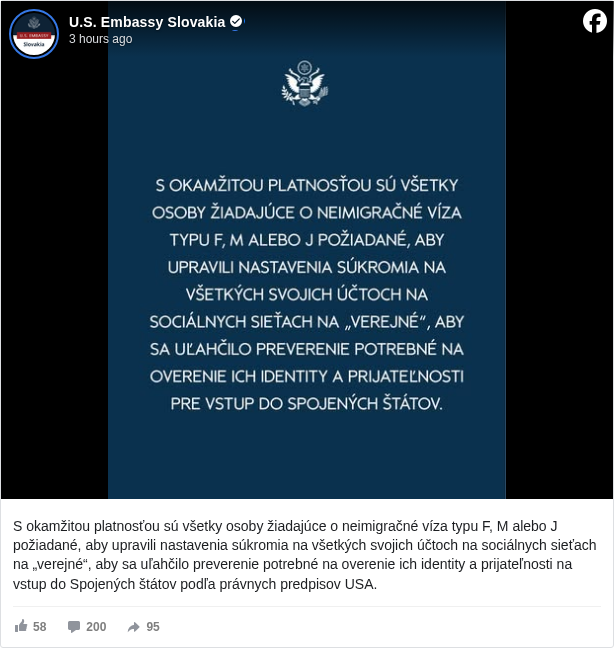The US embassy in Bratislava has instructed applicants for certain student and exchange visas to make their social media accounts public, raising concerns among visa hopefuls.
In a notice posted on social media, the embassy said that, with immediate effect, applicants for F, M and J visa categories – typically used for academic study, vocational training and cultural exchange programmes – are “requested to adjust privacy settings on all social media accounts to ‘public’”. The move, it said, is intended to assist with identity verification and admissibility screening under US law.
The same notices have appeared on the social media channels of other US embassies. The embassy in Vienna wrote: “We use all available information in our visa screening and vetting to identify visa applicants who are inadmissible to the United States, including those who pose a threat to US national security.”
Since 2019, applicants for both immigrant and non-immigrant US visas have been required to disclose all social media usernames or handles used in the previous five years on the DS-160 application form. According to embassy guidelines, failure to provide accurate or complete information may result in the denial of a visa and future ineligibility.
While the policy itself is not new, the instruction to make accounts public appears to represent a tightening of enforcement.


 New instructions from US embassies require applicants to unlock their profiles for vetting – or risk being denied entry. (source: Lawyers Corner)
New instructions from US embassies require applicants to unlock their profiles for vetting – or risk being denied entry. (source: Lawyers Corner)
